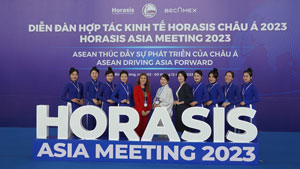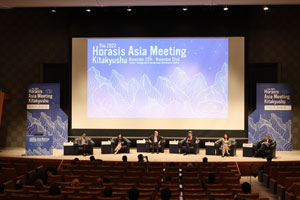The 2026 Horasis Asia Meeting will take place in Singapore on 9-10 July, in partnership with Global Schools Group (GSG). The meeting will convene senior business leaders, policymakers, investors and innovators from across Asia and beyond to engage in high-level dialogue on the region’s economic outlook, strategic priorities and global role at a time of profound transformation.
 |
 |
Singapore stands at the heart of Asia’s growth story. As a trusted global hub for finance, trade, technology and education, and a key anchor of ASEAN, Singapore embodies openness, stability and forward-looking governance. Its deep connectivity to regional and global markets, strong commitment to innovation and sustainability, and long-standing role as a bridge between East and West make it an ideal setting to explore Asia’s next chapter of growth and cooperation.
Against this backdrop, the Horasis Asia Meeting will focus on the forces reshaping Asia’s economies, including digital transformation, resilient supply chains, green growth, human capital development and regional integration within ASEAN and across the wider Asia-Pacific. Discussions will also examine how Asian economies can strengthen collaboration, manage geopolitical uncertainty and contribute to a more inclusive and sustainable global economy.
 |
| Singapore – Host city of the 2026 Horasis Asia Meeting |
The Horasis Asia Meeting has become the foremost annual meeting for Asian business leaders and their global counterparts. The event offers businesses and government officials a platform to discuss a wide range of issues related to the Asian economy. The location of the meetings rotates: they have been held in Bangkok, Thailand (2016), Kolkata, India (2017), Binh Duong New City, Vietnam (2018, 2019), digitally (2020, 2021), Kitakyushu, Japan (2022), Binh Duong New City, Vietnam (2023) and Dubai, UAE (2024).